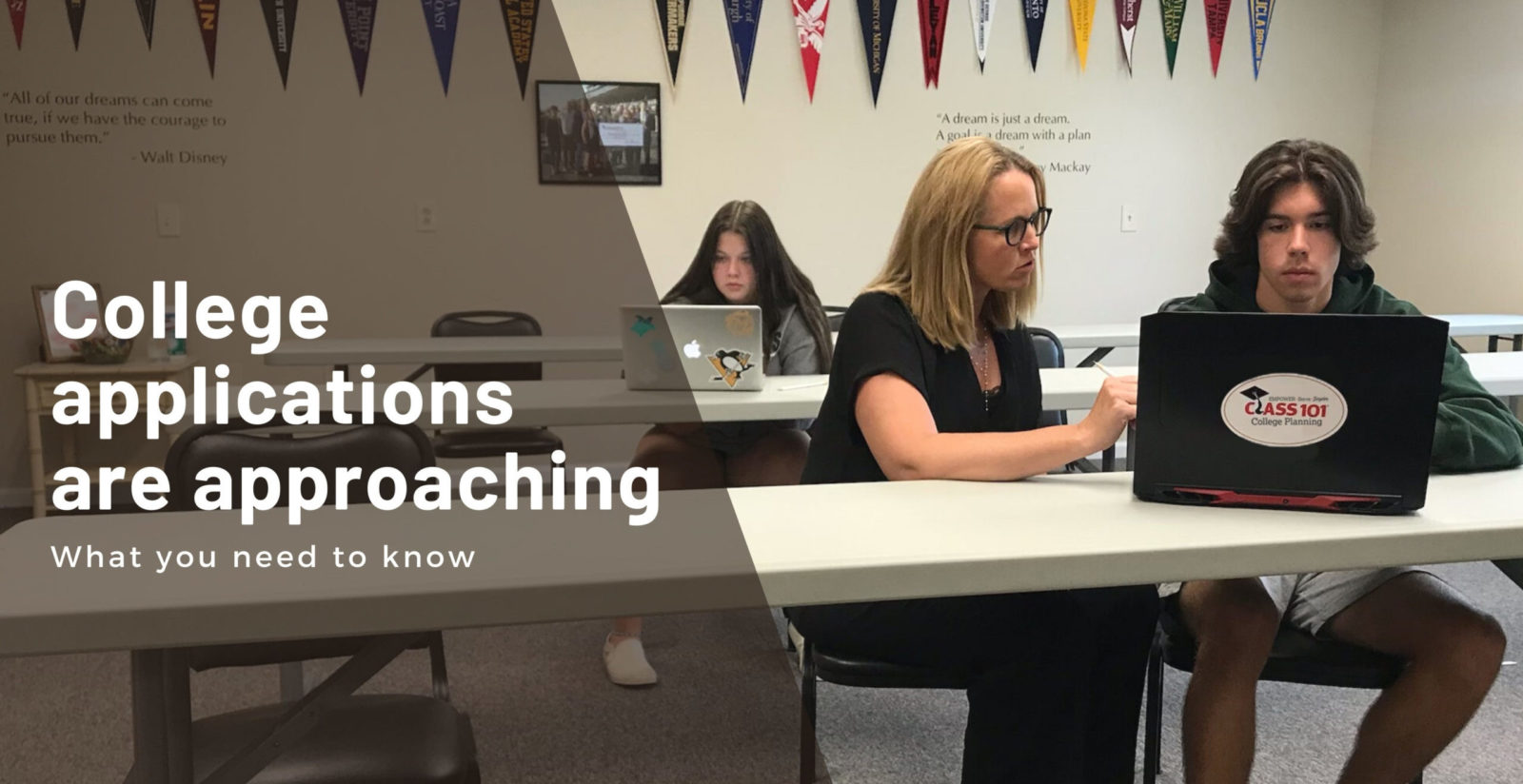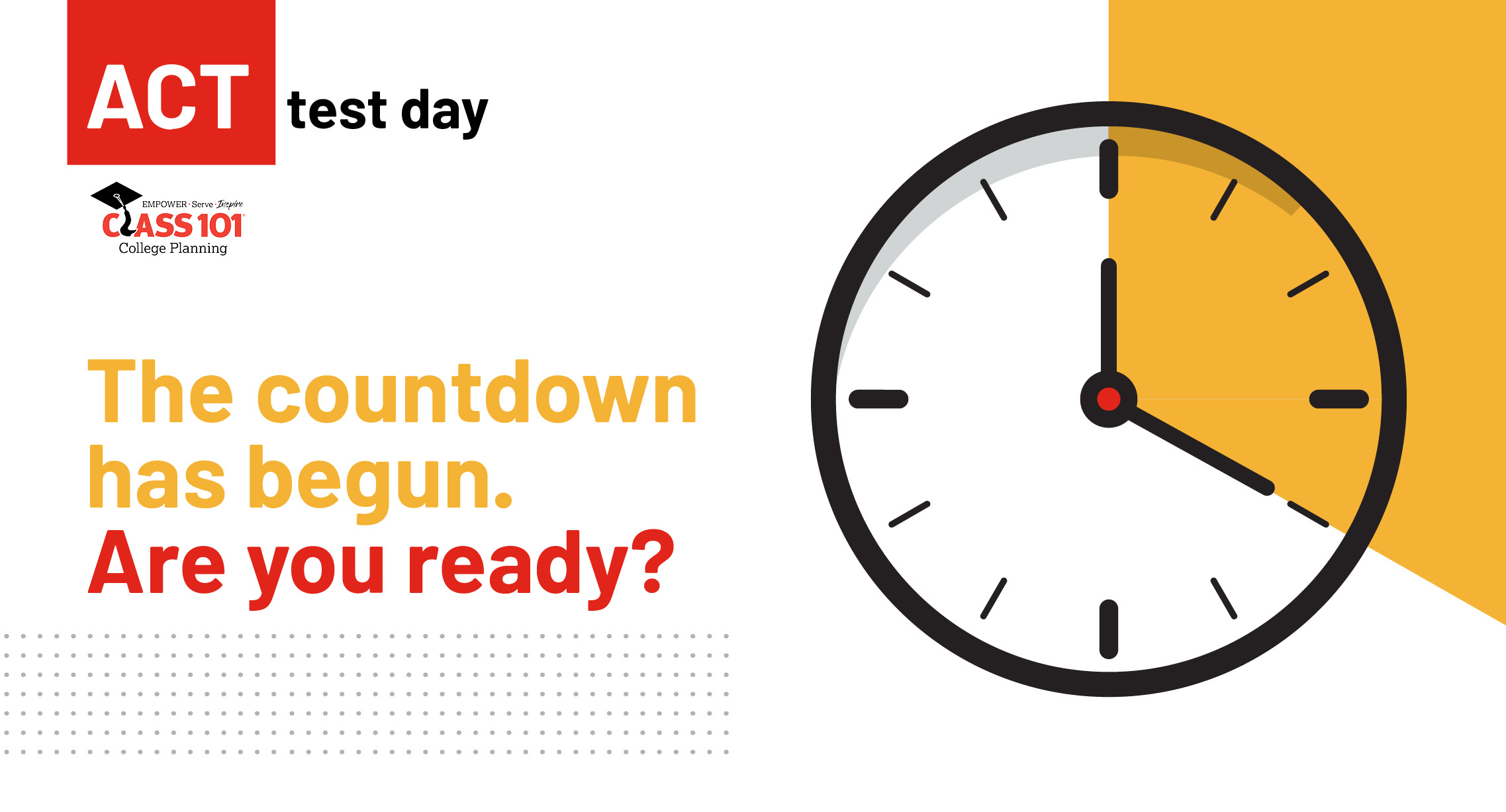July 15, 2021

It’s that time of the year again! College application season is right around the corner for the Class of 2024. Here at Class 101, we understand how confusing the college application process can be. To help families understand what they need to do, we’ve broken down the different types of college applications you need to be aware of: the Common App; the Coalition Application; college-specific applications; and university system application. If you would like further help navigating the college application process, get in touch with us regarding our different services, or find a location near you.
It’s never too early to start preparing for the college application process. Regardless of what type of application your school is using, you’re going to need the following materials before you start:
While some colleges may require only a few items on this list, having all of them in front of you can be useful in making sure your application is as strong as it can be. Along with your letters of recommendation—which you can request from teachers, guidance counselors, and others—these materials form the backbone of your application.
Different colleges will all use varying types of college applications with slightly different requirements, deadlines, and processes. Below we’ve outlined the basics of each of the major types of college applications.
The Common Application, also known as Common App, is the most popular application used by colleges. Students can fill it out one time and use it to apply to as many schools as they’d like using the Common App system, a list that includes over 900 schools. The Common App generally requires students to submit transcripts, extracurricular activities, and to respond to at least one of seven essay prompts through one common set of forms.
In addition to these requirements, schools may ask for additional information, such as responses to short supplemental essay questions, information on their family’s connections to the school, residency, choice of major, and other topics. All of this information can be submitted through the Common App website.
Founded in 2015, the Coalition Application is the newest type of college application. Students can upload past essays, presentations, videos, or projects that they’ve completed throughout their high school career to their application. This approach allows college to be more accessible, especially to lower-income, under-resourced, and first-generation students.
For colleges and universities to be allowed to use the Coalition Application, they must be invited to participate by the Coalition Application’s leaders, usually because they abide by certain standards relating to access, affordability, and student success. As the organization states on its website:
“Coalition membership is by invitation only to institutions that meet rigorous standards in at least two of three areas of emphasis—access, affordability, and success. For example, institutions must enroll at least 20 percent under-represented and low-income students; graduate students with low-to-no debt, while either meeting students’ full demonstrated financial need, offering low-cost in-state tuition, or providing responsible financial aid packages; and/or have a graduation rate of 70 percent or higher or, for low-income and under-represented students, a graduation rate equal to or greater than the school’s overall graduation rate.”
The goals of this application are to drive students to think about the college application process sooner and remove the barriers faced by those who do not have access to college planning resources. Students applying through the Coalition Application are given additional free informational resources regarding the college application process.
Some institutions have their own application process, requiring specific documents and other resources that must be submitted individually. While there are exceptions, colleges and universities with their own applications tend to be more selective. Universities such as Georgetown University, MIT, and West Point do not use the Common App but instead have their own proprietary platforms.
Requirements for these platforms can vary dramatically, with certain colleges requiring responses to specific essay questions, video or audio submissions, and other content. It is essential that students identify what these requirements are ahead of time so that, when it comes to apply, they are not rushing to gather resources before the deadline. This information can often be found on the institution’s website or, barring that, through an email or phone call with the admissions department. Class 101 college planners can also identify these requirements on behalf of students and their families.
A shared system application is an application that can be used to apply to multiple campuses within the same university system. These systems tend to be public universities run by individual states. At the State University of New York, for example, students can apply to any of the university’s campuses through the same portal, uploading specific documents required for admissions to specific campuses and programs. This information is often indicated on the specific campus or program site and can also be found through a Class 101 college planner.
College application season can be challenging for students and their families. While this blog doesn’t include information on every part of the application process, it provides a basic overview of some of the most popular application systems. We encourage all students and their families to reach out to our college planners for personalized support and resources. Whether you plan to apply to a university system through a platform like applyTexas or a small liberal arts institution through the Common App, our staff can ensure you have everything you need when you need it.
If you and your family need further assistance figuring out how to apply through these various styles of college applications, or would like to consult with us about SAT prep or other college prep services, just reach out to Class 101 today and schedule an appointment. Office locations can be found on our site or you can reach us by emailing [email protected].

May 10, 2025
As a high school student, have you ever wondered what exactly is considered a good ACT score? Are you confused about where to set your target score? Do you feel intimidated by the thought of taking the test and not knowing what score to aim for? What is a Good ACT Score? The ACT is […]
Read More >
January 1, 2025
Updated: Jan 2025 There are four sections on the ACT: English (75 question/ 45 minutes), Math (60 questions/ 60 minutes), Reading (40 questions/ 35 minutes), Science (40 questions/ 35 minutes) and then the optional writing portion. ACT Math Math is the easiest section to raise your score in. This section is the one where students […]
Read More >
July 10, 2024
Summer is underway and most students are enjoying a well-deserved break from school work to pursue sports, hobbies, summer jobs, travel, and more. Still, these hot summer months should not distract from one key fact—the start of college admissions season is right around the corner. Most colleges and universities will begin accepting applicants for the […]
Read More >